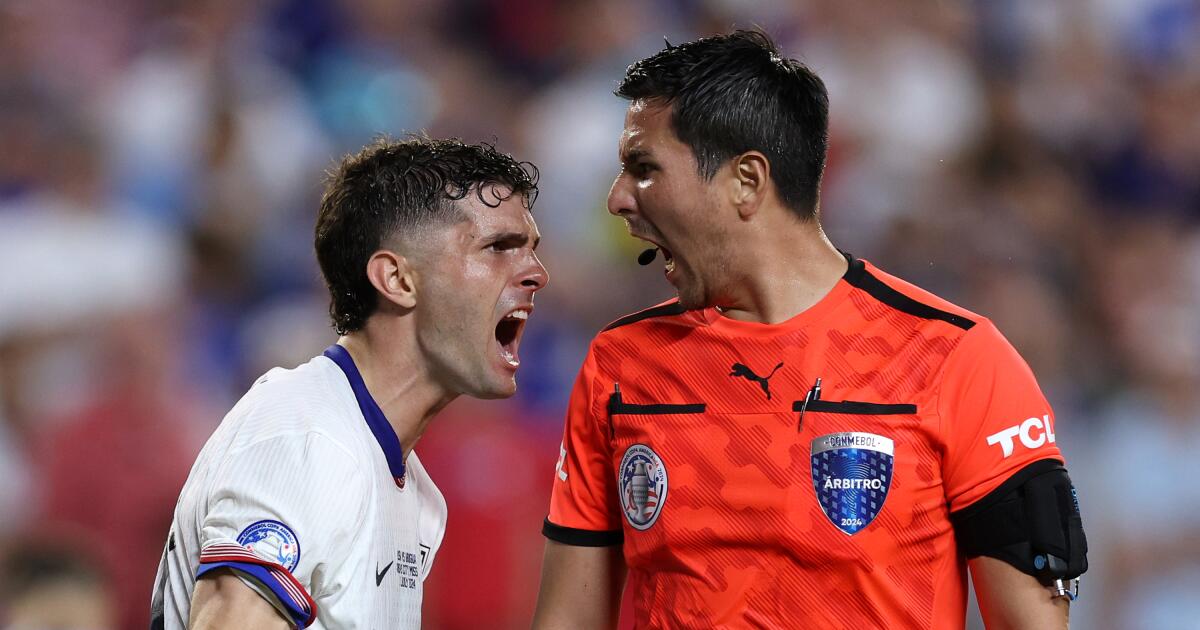UPDATE: The debate over officiating in soccer is intensifying as players increasingly challenge referee decisions during matches. This trend was highlighted last Saturday when Chinese referee Ma Ning faced a swarm of protests from Indonesian players after their World Cup qualifier loss to Iraq.
Referees, like Christina Unkel, a former youth referee turned attorney, understand the chaotic nature of these confrontations. Unkel recalls only one instance in her career where she changed a call due to player protests—a rare occurrence in a sport where the referee’s decision is typically final. “Could you imagine if someone comes up and yells at you, and you were very solid in your decision, and then you decide to change your mind?” she asked. “You’re not coming back.”
Soccer is the only major U.S. team sport that allows players to argue calls, a fact that has led to dramatic scenes on the pitch. Unkel notes that apart from a few extreme cases, like the red cards issued to Indonesian players last weekend, expressing frustration with officials is part of the game’s fabric. “It’s part of the sport and it’s been that way for so long,” said defender Aaron Long, who recently ended his season due to injury.
The fluid nature of soccer contributes to frequent conflicts with referees. “Soccer is so fluid,” Long explained. “And that fluidity gets broken up by their calls. So it’s like everyone is able to stop and argue in that moment.” Teammate Timothy Tillman echoed this sentiment, emphasizing that many calls are subjective, leading to differing opinions among players. “There are many 50-50s,” he stated.
This culture of arguing dates back to the early days of soccer when disputes were settled by team captains. It wasn’t until 1891 that the sport established a single, neutral referee with full authority over the game, a decision that has remained unchanged as the game evolves. Unkel, who became one of the youngest FIFA officials at 25, believes that the game’s inherent gray areas contribute to ongoing disputes. “It’s because our sport flows and ebbs, and there is a lot of gray,” she said.
Home-field advantage also plays a crucial role in how players appeal to referees. Long pointed out that crowd dynamics can influence officiating. “Sometimes when there’s a little, tiny foul on a guy and you’re away and the crowd doesn’t do anything, maybe you don’t get it,” he noted. “But at home, the whole crowd goes crazy, and then he calls it really quick.”
The emotional stakes can lead to irrational behavior from players. Unkel remarked, “People are irrational when they play sports. One team is not going to be happy with you regardless of what decisions you make.” While referees are trained to handle these situations, the pressure from players and fans can be overwhelming.
As soccer continues to grow globally, the discussion around officiating and player conduct is more relevant than ever. With upcoming matches and tournaments on the horizon, fans and players alike are eager to see how these dynamics will unfold on the field.
Stay tuned for more updates on this developing story and its impact on the beautiful game.
